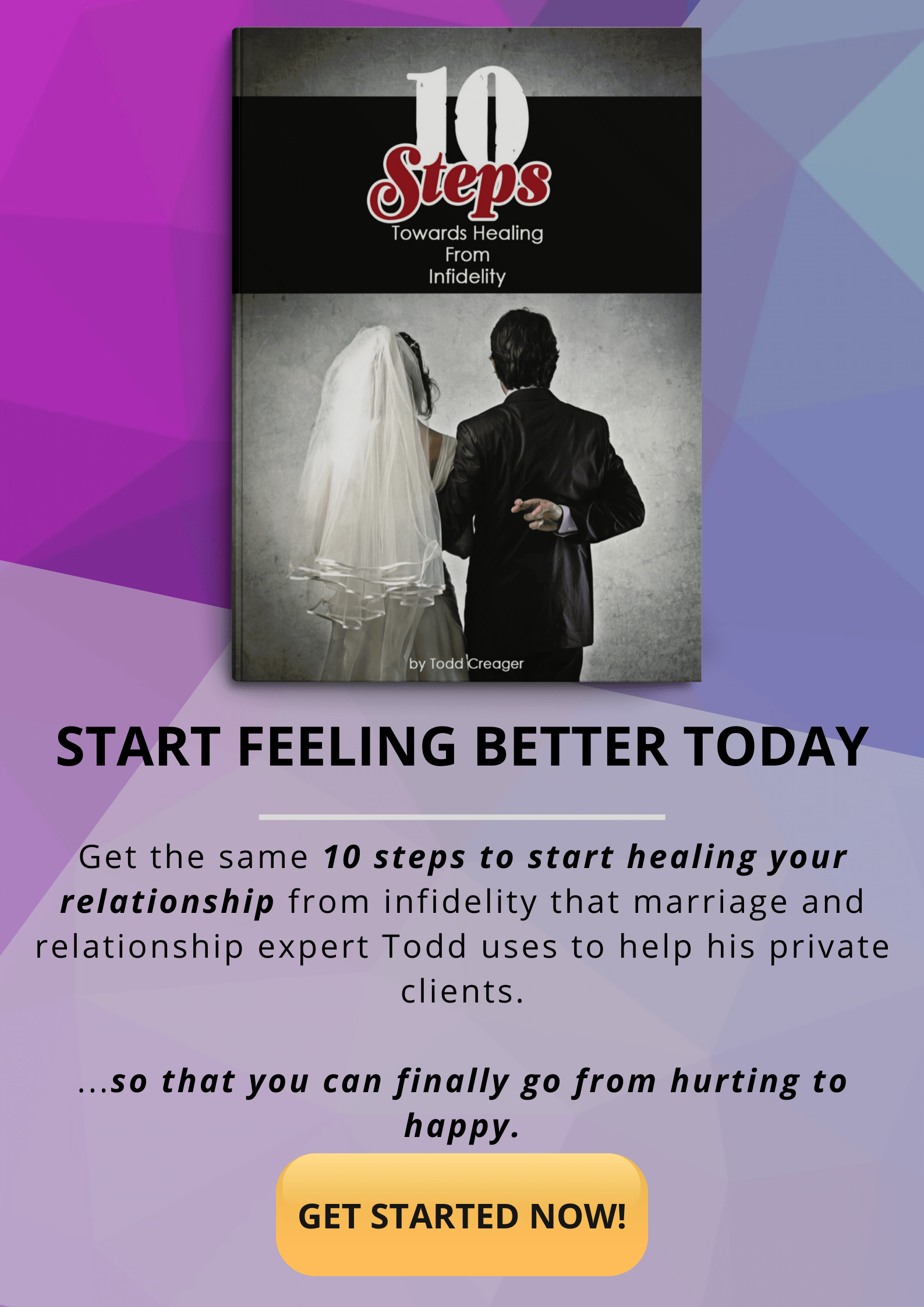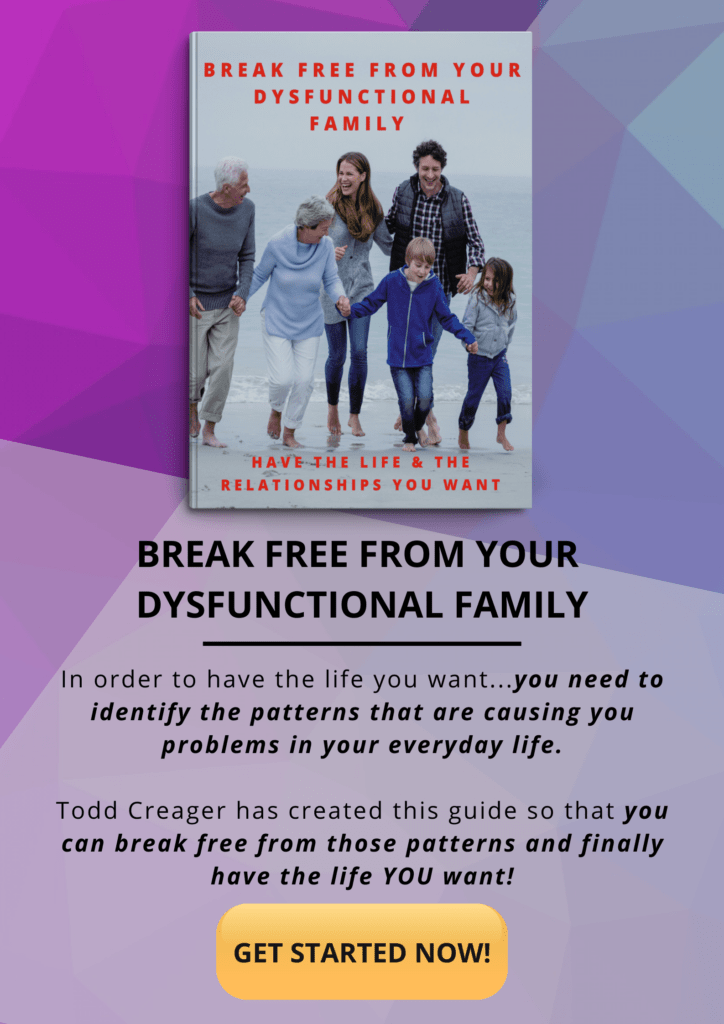Discover how betrayal becomes the unexpected catalyst for reclaiming your authentic self and breaking generational patterns
When someone discovers their partner’s infidelity, the immediate reaction is almost always the same: “What’s wrong with me? What didn’t I do? How am I not enough?”
I’ve worked with thousands of couples navigating the aftermath of betrayal, and I can tell you this with absolute certainty: the infidelity was never about you.
But here’s what might surprise you even more—it wasn’t really about your partner either. It was for you. Both of you.
The Performance We Mistake for Living
As betrayal recovery coach Lora Cheadle shared in our recent conversation, most of us spend our lives performing rather than expressing. We follow scripts handed down through generations, living up to labels others placed on us years ago, without ever stopping to ask: “Is this actually who I am?”
“We have labels,” Lora explained, “and then we embody those labels without questioning. She’s the smart one. He’s the capable one. We just roll with it because life is busy… But 20 years later, you go, ‘How did I end up in this life? This isn’t really the kind of life I wanted to create.'”
This is what I call the slow betrayal of self—and it happens so gradually that we don’t even notice until a crisis forces us to pay attention.
Why Your Partner’s Cheating Had Nothing to Do With You
When I tell betrayed partners that the infidelity wasn’t about them, I often encounter resistance. There’s something almost comforting about believing it was your fault—because if it was about you, then theoretically, you had some control over it.
But here’s the deeper truth: cheating is almost always a maladaptive coping mechanism.
Your partner was trying to regulate emotions they didn’t know how to handle. They were seeking validation for wounds that existed long before you entered their life. They were attempting to fill a void that had nothing to do with what you provided or didn’t provide in the relationship.
As Lora powerfully stated: “My husband’s cheating had nothing to do with me. He was the one with pain. He was the one with an inability to identify or express or communicate his emotions, his needs, his wants. He had a problem. He was trying to feel better.”
The Moral Defense: Why We Take False Responsibility
There’s a psychological concept called the “moral defense” that explains why betrayed partners desperately want to make the infidelity about them. When children experience neglect or abandonment, they can’t accept that their caregivers simply couldn’t be there for them—that’s too terrifying. Instead, they think, “If I could just be a better child, if I could be more loving, then maybe…”
The same thing happens with infidelity. Taking false responsibility feels safer than accepting that we truly have no control over another person’s choices. But this false safety keeps us stuck in a victim role and prevents us from accessing the real opportunity that crisis presents.
From Devastation to Initiation: The Questions That Change Everything
The shift from devastation to empowerment happens when we stop asking “Why did this happen to me?” and start asking “What is this here to awaken in me?”
This isn’t about bypassing the pain or pretending the betrayal was somehow good. You were victimized, and that’s a fact. But being a victim is a role, and you get to choose how long you play it.
Laura put it perfectly: “You can play the role of victim until you’re 80 years old and still tell this story. But I get one life to live here, and I’m living it from an empowered place.”
Breaking Generational Patterns
One of the most profound aspects of healing from infidelity is recognizing the generational patterns at play. Through epigenetics, we carry not just our own experiences but the unresolved trauma and patterns of our ancestors.
“How often are we repeating our parents’ or grandparents’ patterns? Lora asked. “If your parents went through infidelity and your grandparents went through infidelity… do I want to be part of this line? No, I want to do things differently.”
This is where the real transformation happens—not just healing your relationship, but becoming the one who breaks the cycle.
Reclaiming Your Self-Possession
The couples I’ve seen thrive after infidelity share one common trait: they used the crisis as an opportunity to become more fully themselves. They discovered parts of their authentic self that had been pushed aside or never fully expressed.
Many betrayed partners realize they weren’t selfish enough—and I mean that in the healthiest way. They gave and adapted and served until they lost touch with their own needs, desires, and boundaries. The crisis forces them to reconnect with their “healthy selfishness.”
Similarly, many partners who betrayed discover they also weren’t selfish enough—they never learned to express their struggles, ask for what they needed, or communicate their pain in adult ways.
The Soul-Level Invitation
From a soul perspective, betrayal often serves as a shattering away of the external to help us find the life of the internal. Your soul—that divine essence of who you truly are—cannot actually be destroyed by betrayal, even when it feels completely shattered.
As Lora beautifully expressed: “I can be living under the proverbial bridge and be a whole, worthy, complete being in the exact same way that if I’m in this amazing mansion… my soul is still that strong.”
Your Path Forward
If you’re reading this in the aftermath of betrayal, please know this: healing is not only possible, it’s probable when you do the work. But it requires moving beyond the surface level of “fixing the relationship” to doing the deeper work of reclaiming yourself.
The questions that will guide you forward are:
→ How have I been performing instead of expressing?
→ Where have I betrayed myself in small ways over the years?
→ What parts of my authentic self have I pushed aside?
→ How do I want to feel every day moving forward?
→ Who do I want to become through this experience?
The Opportunity Awaits
I’ve witnessed countless couples emerge from the devastation of infidelity stronger, more connected, and more authentic than they ever were before.
Not because infidelity is good—it’s painful and destructive. But because they used the crisis as a catalyst for the deeper work their souls were calling them to do.
You have been victimized, and that pain is real and valid. But you are also being invited into the most important relationship of your life—the one with your authentic self.
The choice is yours: Will you remain stuck in the story of what was done to you, or will you write a new chapter about who you’re becoming?
Remember: You didn’t cause the betrayal, you can’t control it, but you absolutely can choose what you do with it.
Watch The Interview Here
About Lora Cheadle
Meet Lora Cheadle — a betrayal recovery coach, bestselling author, and host of the podcast FLAUNT! Create a Life You Love After Infidelity or Betrayal.

After discovering her husband’s 15-year affair, Lora rebuilt her life from the ground up and now helps women cultivate peace, confidence, and sovereignty on the inside, no matter what has happened on the outside.
Her mission is to empower women to reclaim their power and self-worth, so they don’t let the affair or the choices of others define them.
With personal understanding of infidelity’s challenges, Lora knows firsthand how to help women turn devastation into a reclamation of themselves and their worth.
Ready to Begin Your Healing Journey?
Download Lora’s Free Betrayal Recovery Guide: Hope. Healing. Peace.
Has betrayal shattered your sense of safety or self-worth? You’re not alone—and you don’t have to stay stuck.
This free guide walks you through five clinically-backed stages of healing that have helped hundreds of women move from heartbreak to wholeness.
You’ll Get:
→ A clear path forward through the proven phases of recovery
→ Practical tools: guided meditations, somatic practices, and journaling prompts
→ Root-level healing to feel whole, safe, and true to yourself again
→ Lasting confidence, clarity, and joy for your next chapter
Get Your Free Betrayal Recovery Guide Here: https://loracheadle.com/betrayal-recovery-guide/





Reader Interactions